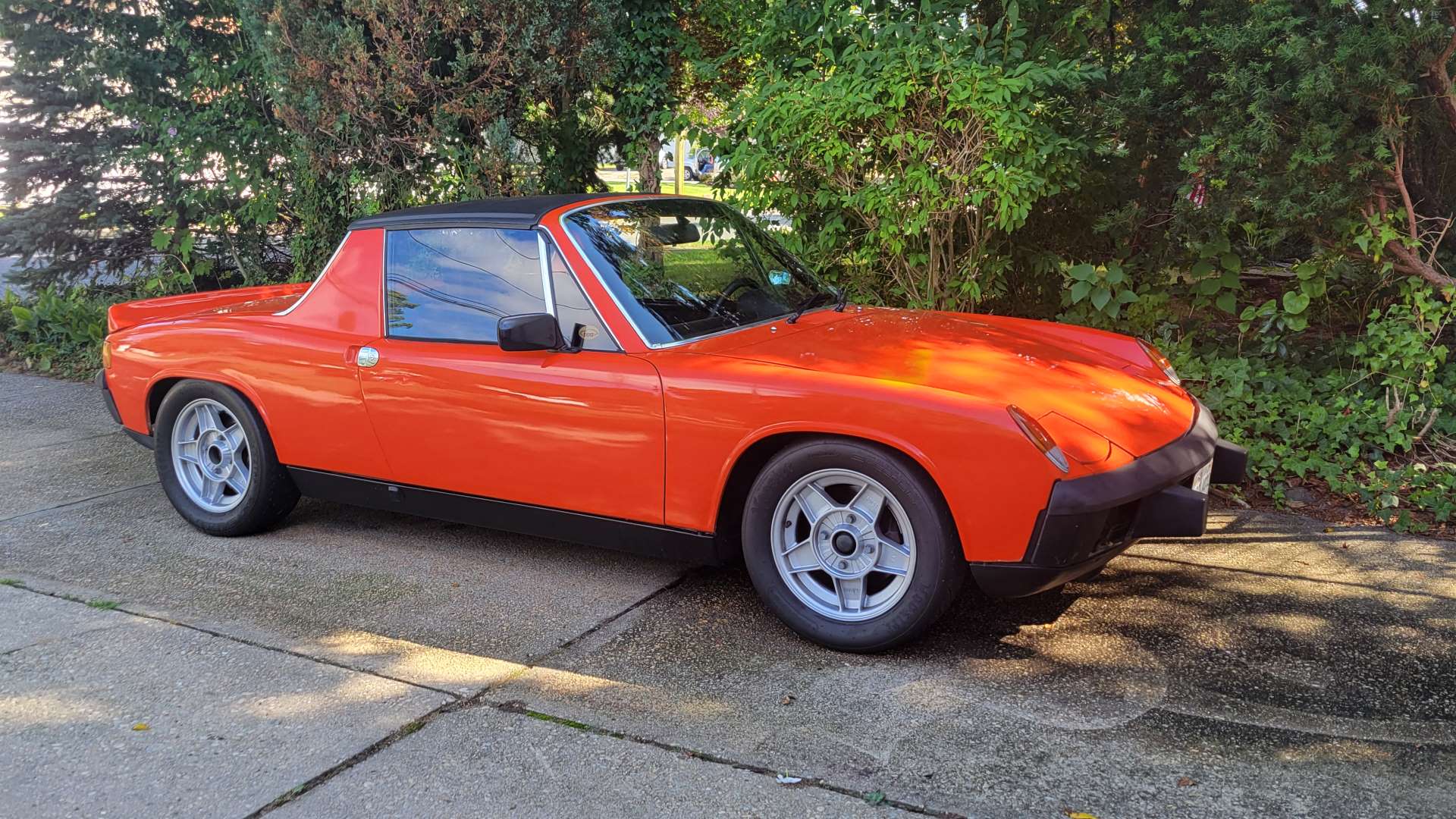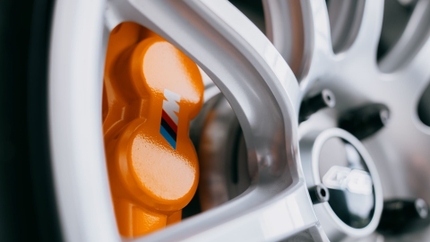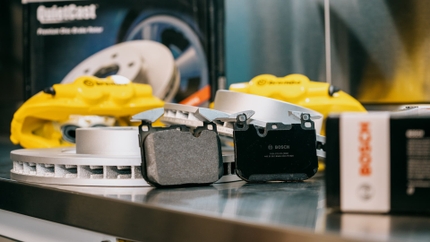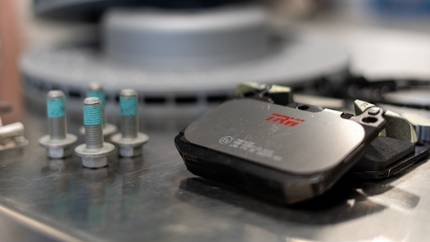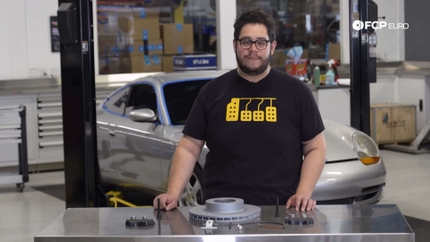- 05/22/2025
- 3 Min Read
- By: Christian Schaefer
How Bosch QuietCast Brakes Keep OE-Quality Stopping Power While Saving You Money
You get what you pay for, right? Well, that statement is a little more involved than many make it out to be. There are plenty of big brands that fall short in engineering, and there are others that don’t charge an arm and a leg for well-built products. When it comes to brake system components like pads and rotors, Bosch is squarely the latter. The manufacturing and engineering giant has their hand in seemingly everything, and brake system components are no exception. They’ve developed ground-breaking braking technology and continue to produce systems for the most complex race cars you’ll see in endurance racing series today. That same level of care and engineering also provides genuinely affordable parts for the average road-going model.
Bosch QuietCast Are Built To Last
As alluded to above, trusting something simply based on the name it carries isn’t always the best idea. Many companies have dropped the ball on quality, expecting customers to purchase and support the products solely based on name recognition. But the QuietCast line has the engineering might of a huge player in the auto industry who’s actively developing the next generation of vehicle tech and safety. Bosch is the leader in delivering anti-lock braking systems (ABS), traction control systems (TCS), and electronic stability programs (ESP) for automakers, and each one of those requires a good brake pad that’s accurate to what a given vehicle will use in testing to ensure those systems are working correctly. What better place to test brake rotors and pads than there?
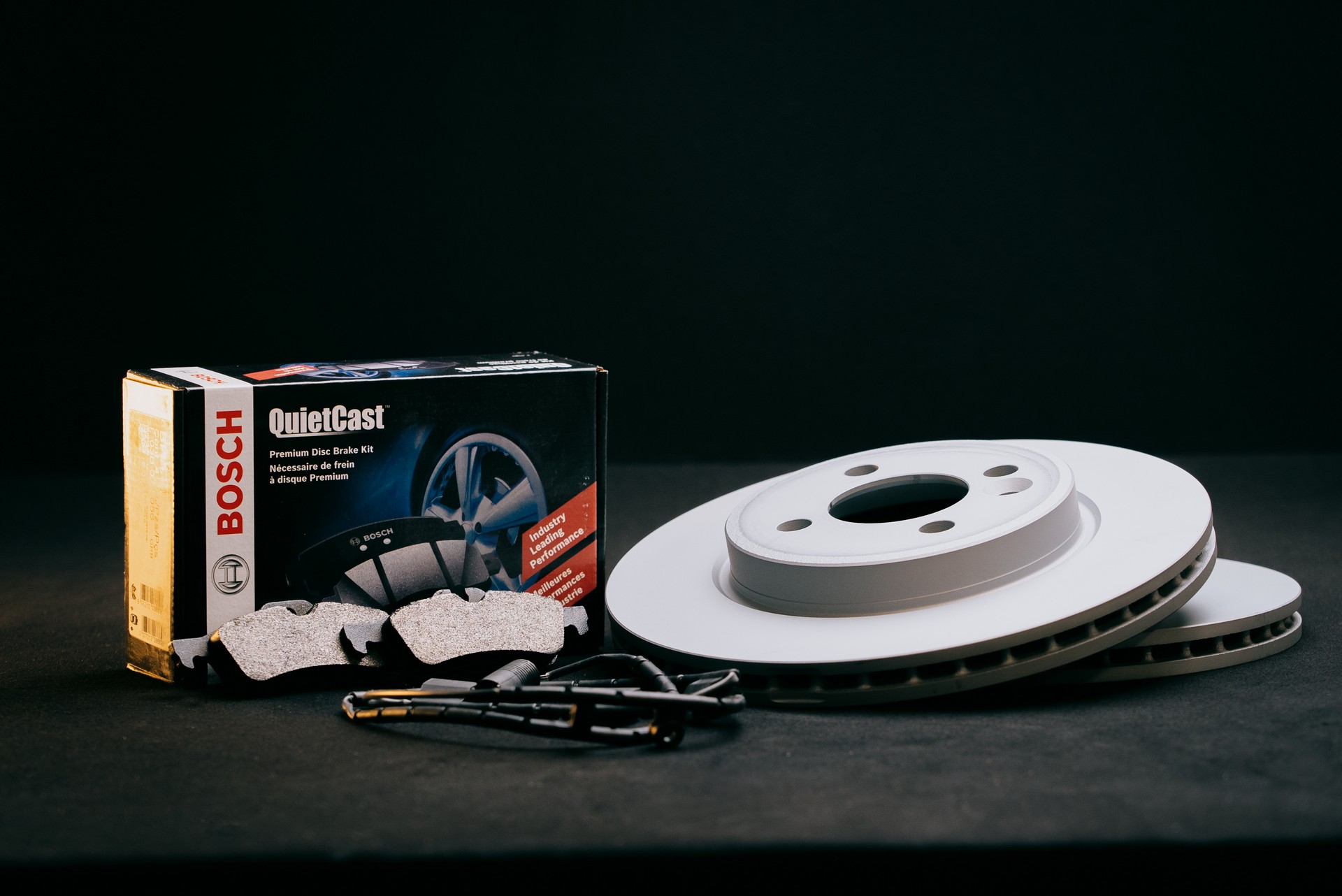
Rotors have remained relatively unchanged over the last thirty years, but that doesn’t mean they can’t be made poorly. Each QuietCast rotor is precision balanced after being cast to ensure that there aren't any vibrations that would transfer to the car. From there, they’re measured against Bosch’s industry-low run-out and DTV specs to ensure the friction surfaces are as even and balanced as possible. Then, an aluminum-zinc anti-corrosion coating is applied to the surface. It’ll be ground off the rotor surface when the brakes are used, but the hat will remain coated, preventing rusting and aiding in heat dissipation. That said, all of the work put into the rotors isn’t anything special; it’s just what’s required of quality parts. The real work goes into the brake pads.
Whereas rotor development hasn’t changed much beyond carbon-ceramics, pad compounds continue to evolve. The QuietCast pads are either a semi-metallic compound, meaning their friction pads feature various metals, including iron, steel, and graphite, or a ceramic compound, both of which are held together by a high-temperature resin. They’re capable of withstanding much higher temperatures and more repeated abuse than pads with organic friction pads, making them highly suited to the sportier products of Europe. However, the QuietCast pads feature a couple of goodies to help extend pad life and reduce unwanted brake dust.
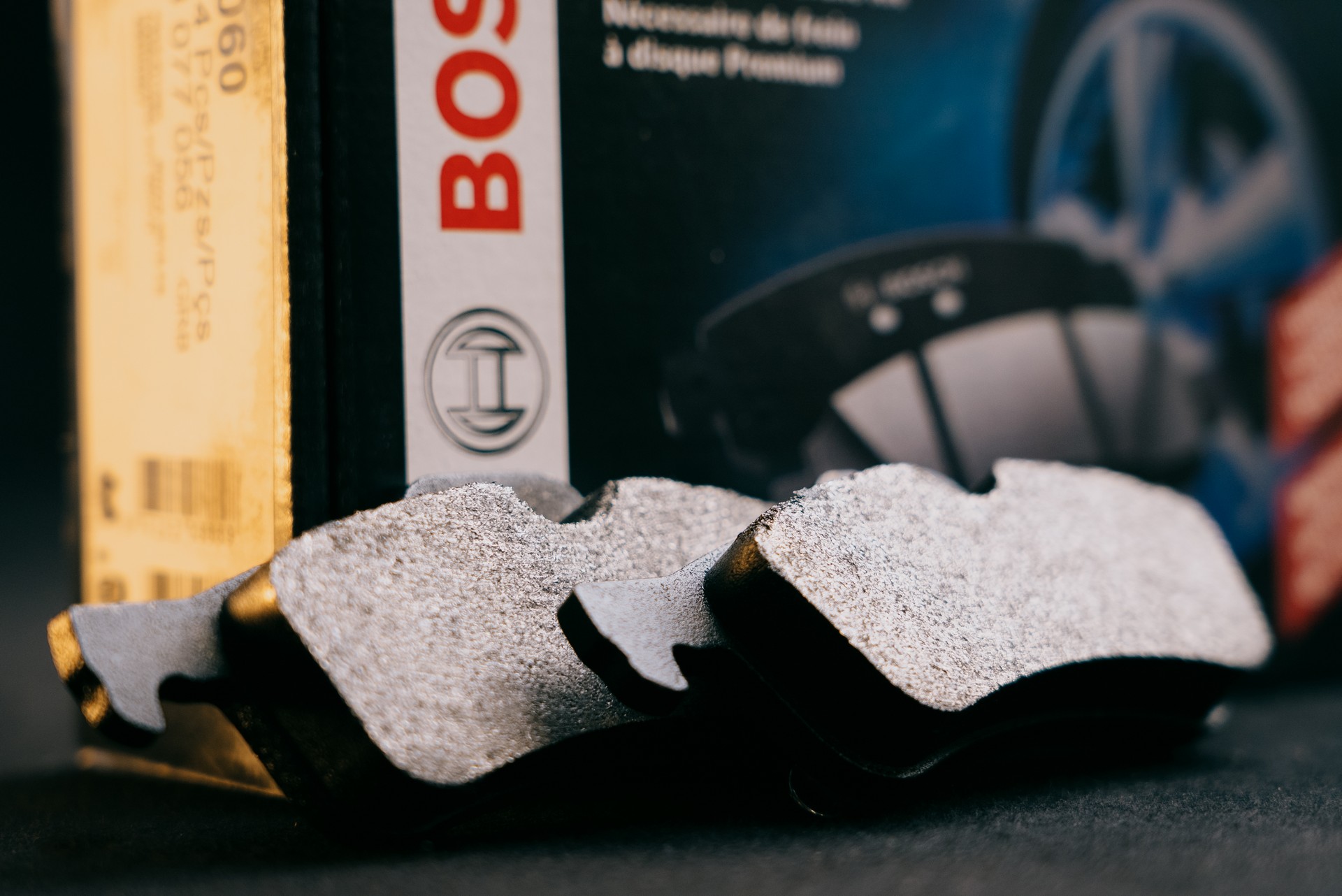
All new QuietCast brake pads have a zirconia coating on the outside. Zirconia is a crystallized compound containing Zirconium and is used for its incredible hardness and thermal stability. As the pad transfers some of itself into the brake disc during the bedding process, it provides a more durable surface for the pad to press against. That reduces pad and rotor wear without hampering the brake’s stopping power.
Within the pad, beneath the surface, is a relatively high concentration of the latest ceramic formulas. That’s obvious for a ceramic pad compound, as that’s what it’s made of, but it has extra benefits for the semi-metallics. Ceramic pads produce the least amount of brake dust and have the highest thermal stability of all the available pad types you can buy for your street car, but they can be a bit more costly than a semi-metallic while providing a softer initial bite. Injecting some of the ceramic’s benefits into a more traditional sem-metallic pad gives the QuietCast pad better stopping power and cold-weather bite while reducing dusting and improving fade resistance.
But how can you be sure all of that makes the Bosch QuietCast equivalent to, if not better than, an OE? It's easy; just look at its credentials.
Not OE? Not A Problem
Brake pads and discs are among the most essential parts of your car regarding safety and performance, so you want to avoid compromising on them. A massive perk of the QuietCast line is its ECE-R90 certification, which caters to all of its European fitments.
What is R90 Certification on a brake component? Simply put, it’s a European-market certification for brake component safety. A product with an R90 certification means that, after stringent testing, the performance and materials used are deemed to match or exceed the performance and durability equivalent of the OE equipment that the vehicle would’ve come with from the factory. That means a Bosch pad for your European vehicle will be the same, if not better, for stopping than whatever the Genuine parts are. Now, the R90 certification won’t apply to every set of brakes you look at—i.e., your track day or motorsport-spec pads—but it allows price-conscious shoppers to see where they can save some money without decreasing their brakes’ effectiveness.
Reaching specific engineering standards often causes products to reach higher price points, thanks to the extra effort needed to clear them. But Bosch is one of the few that has the power and personal experience to hit the strict targets while undercutting competitors’ costs. Bosch employs one of the only human brake pad formulators remaining in the industry, so each brake pad’s composition is engineered with decades of experience in designing and testing brake friction surfaces. Their rigorous testing also confirms the efficacy of these components even before receiving their R90 certification, meaning that despite a cost-of-entry that you can stomach, a set of Bosch pads and discs carry the same testing and certifications as the Genuine alternatives.
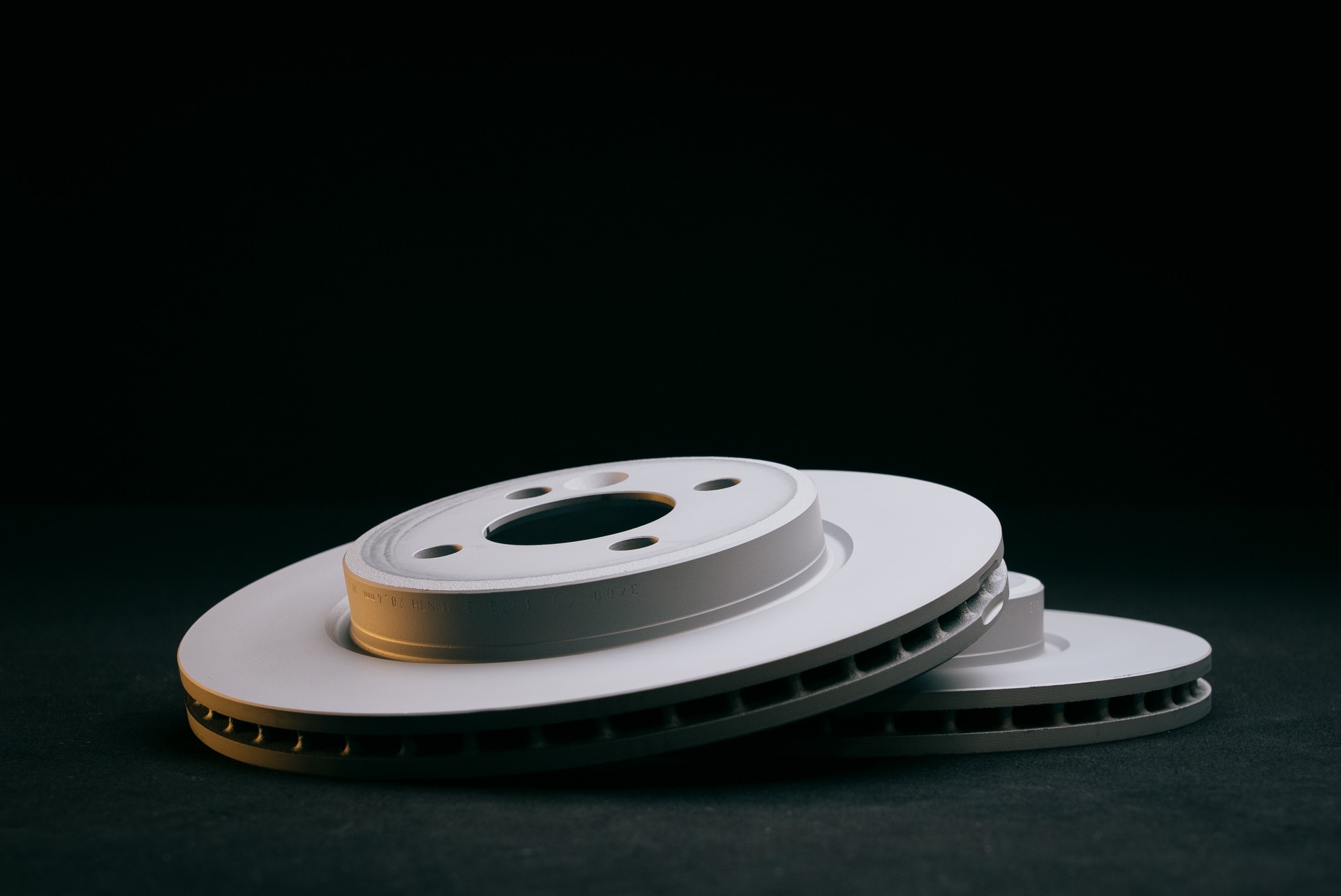
Of course, other aftermarket companies do meet the Euro standard. EBC Brakes is an excellent example of an “upmarket” R90 certification; Red Stuff, Green Stuff, and Yellow Stuff pads aim to increase performance and even offer the capability for light track duty. In this instance, the R90 certification is as essential as the Bosch certification, but inversely, despite being able to maintain high-temperature function on the racetrack, these EBC pads are still certified by European standards to function well as an everyday set of brakes. While they may generate some more dust, noise, and wear than the OE alternatives or in comparison to our Bosch Brakes alternatives, they’ll still brake with reassurance on a day-to-day basis.
Head over to our main site, enter your car's information into the "My Garage" section, and then search for QuietCast parts in the search bar. That way, all of the search results will be tailored to your specific car. Feel free also to check out all of our other content: here on the DIY Blog and on our two YouTube channels. There, you'll find all sorts of informative and entertaining content!

